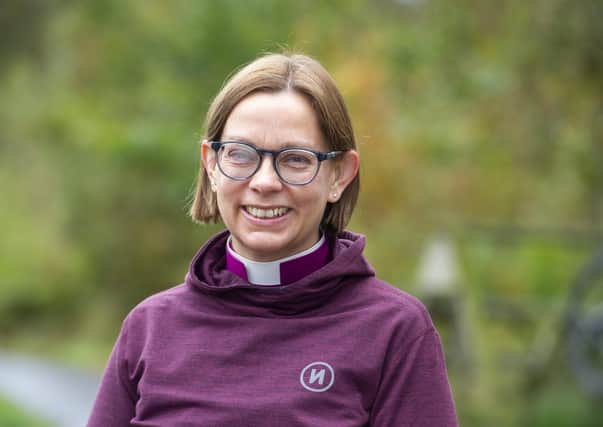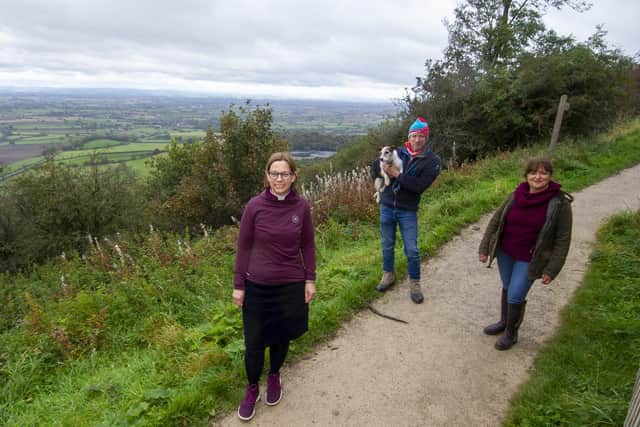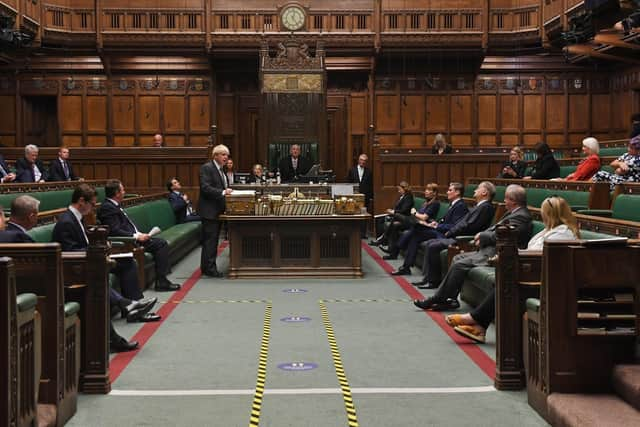How language can bring us together in New Year after pandemic – Bishop of Ripon


This included three bonus points for correctly guessing the number of singers in the South Korean mega-band ‘‘BTS’’ (seven, if you’re interested).
I also knew the answer to the question: ‘‘Which famous actor danced (and flew) in the video of the 2001 Fat Boy Slim hit Weapon of Choice?” (Christopher Walken).
Advertisement
Hide AdAdvertisement
Hide Ad“How come you know that?” I was asked, in a cheery tone that suggested no one thought the bishop would know.


I explained that I had used it once in a sermon illustration.
“Err, right,” they replied.
Quizzes aside, and I expect there has been a fair amount of online quiz activity over the last 48 hours or so, what has been noticeable in recent weeks is the increased choice use of weaponising language in public discourse.
Covid-19 has been the invisible enemy that we must defeat with world-beating techniques; gunboats are to be deployed in UK fishing waters in the event of a no-deal Brexit, and so on.
Advertisement
Hide AdAdvertisement
Hide Ad

Even my online ‘‘Strava’’ account popped up an excitable message the other day announcing ‘‘How you Beat 2020’’.
I wasn’t aware I was trying to do that while running around Ripon over recent months.
What we have learned a great deal about this year is what it means to live with one another.
That much of this has been about how we avoid one another through physical distancing has of course been a huge part of the grief of this past year.
Advertisement
Hide AdAdvertisement
Hide AdYet distancing has been a feature of our lives since the 2016 Brexit referendum, and this year has seen the additional dynamic of the deteriorating health of the union of nations that make up the United Kingdom.
Where will it end?
I don’t know the answer to that existential quiz question, but I suspect it was a question that was asked frequently during Jesus’s ministry, and the end of his story looked like a failure.
Except it wasn’t.
Today is the day after yesterday, a day when we celebrated the birth of the one who knew and experienced the depths of grief and the heights of joy.
I expect that for all of us, it wasn’t the Christmas Day we expected, and for many there wasn’t much to be thankful for, least of all feeling thankful about a child born more than 2,000 years ago.
We call today ‘‘Boxing Day’’.
Advertisement
Hide AdAdvertisement
Hide AdIt’s not about putting gloves on and battling an opponent; in its origin it is a day that expressed concern for the poor.
Thought to have originated in the time of Queen Victoria (like so many of our Christmas traditions), Boxing Day was the day when servants and workers opened boxes containing donations from the rich.
For a great deal of Yorkshire at its industrial height, this meant financial gifts from factory owners.
Today, Boxing Day is more about what to do with the leftover turkey, and attending to the task of breaking down endless delivery boxes ready for recycling.
Advertisement
Hide AdAdvertisement
Hide AdUnlike recent years, however, I have heard distressing accounts of loneliness and isolation in the past days of even more restrictions in our movements, but have been deeply encouraged by the ways in which churches and community organisations have done their best to ensure those in isolation are supported and not forgotten.
Perhaps this is a rediscovery of a basic human desire to try to heal, rather than to harm, a desire bound up in the narrative of the Christian story.
I wonder then what it would look like if politicians tried to frame their language in a similar way?
I wonder indeed.
2020 has been pretty terrible, but there is something helpful in taking the longer view about the child born 2000 years ago because in that great span of history we have been there before, and I have hope that we will get through this pandemic season together.
Advertisement
Hide AdAdvertisement
Hide AdThe narrative of Christmas (and Boxing Day) embodies hope, of a God who cares enough about us to become one of us and who experienced the joy and sorrow of what it means to be human.
For me, the new year just a few days away is an opportunity to refresh my attitude, perspective and language.
Not to ignore what has gone before but to face what is ahead, however full of uncertainty with hope, a heightened sense of the needs of my neighbour.
In a culture that has embraced the ‘‘it’s all about me’’ narrative, this is a bold assertion of ‘‘it’s all about us’’. We are in this together.
A new year, a new ‘‘us’’.
Advertisement
Hide AdAdvertisement
Hide AdThe Right Reverend Dr Helen-Ann Hartley is the Bishop of Ripon.
Support The Yorkshire Post and become a subscriber today. Your subscription will help us to continue to bring quality news to the people of Yorkshire. In return, you’ll see fewer ads on site, get free access to our app and receive exclusive members-only offers. Click here to subscribe.
Comment Guidelines
National World encourages reader discussion on our stories. User feedback, insights and back-and-forth exchanges add a rich layer of context to reporting. Please review our Community Guidelines before commenting.